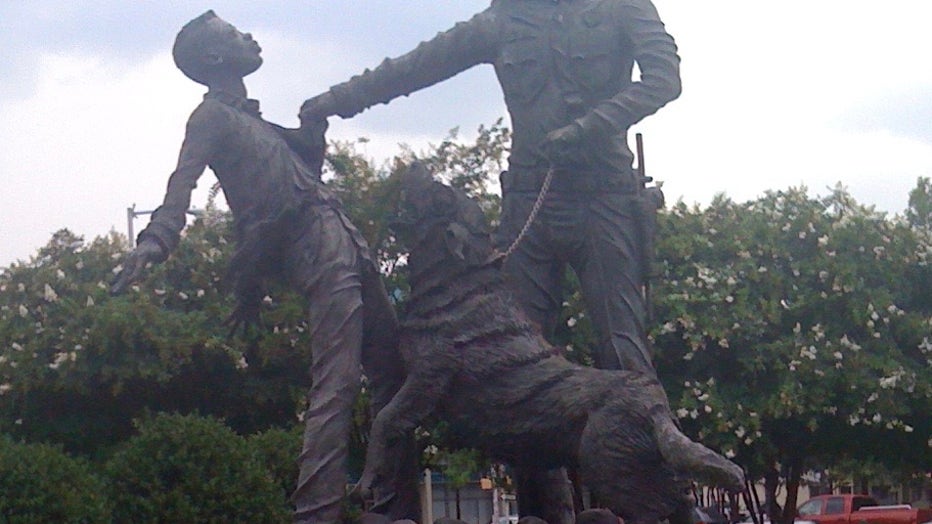Protestors remember the 60th anniversary of the Children's Crusade of 1963
Members of the Children's Crusade recall historic march
Black history is American history and this year marks the 60th anniversary of the some of the most pivotal events in the civil rights era. One of those is the Children's Crusade. The protest is credited with the eventual passage of the Civil Rights Act of 1964 but a number of the children who marched believe time has allowed people to forget what it was really like back then.
BIRMINGHAM, Ala. - Sixty years ago, young protesters spilled out onto the streets of downtown Birmingham. Today, their actions are considered to be on the right side of history. But some of those civil rights foot soldiers believe time has allowed people to forget what the climate was at the time. Janice Wesley Kelsey recalls the idea of youngsters, like her, protesting was not considered a good idea by many.
"Many adults thought we shouldn’t be put at risk," says Wesley Kelsey.
Wesley Kelsey was 16 years old back in the spring of 1963. Many marchers were younger than her. Paulette Roby was 13 years old. So was Judy Repp Stickney.
"I was a baby," says Repp Stickney.
Each of them wanted the simple things racial segregation would not let them have.
"I wanted to be able to walk through the front door, I wanted to be able to drink from the water fountain," says Roby.
Wesley Kelsey says she fought for the things that are taken for granted today.
"I didn’t like that I had to pay the same price for a hot dog and coke, but couldn’t sit down to eat it," says Wesley Kelsey.
The Civil Rights Trail is marked with signs in downtown Birmingham. Along 4th Avenue North, the signs lead to the Civil Rights Activist Committee headquarters. The non-profit organization keeps the civil rights foot soldier's stories alive.
Here, a number of photos and a painting on the wall of the Southern Christian Leadership Conference's Rev. James Bevel can be seen. He's the man who orchestrated the Children's Crusade of 1963. With mass rallies, he recruited young people to protest in the streets when it became too difficult to find adults willing to march and be jailed. Many adults were losing their jobs for participating in civil disobedience.

The 16th Street Baptist Church, which would be bombed later that year, held a number of mass meetings.
"We was fired up when we walked out of that church," recalls Roby. "You wanted to go to jail."
Repp Stickney says many of the children were not from the middle-income neighborhoods like Titusville. Most were not kids of teachers, preachers and doctors.
"But the maid’s kids versus the teacher’s kids. I'm not saying none of them didn't get out there, but their parents might have thought that they made it, and they didn't need it anymore," says the now-73-year old.
Many of the young protesters participated in the violent Children's March of 1963 without their parents' permission.
"They just start letting the dogs out. I mean, they used a Billy clubs. So, I ran," remembers Roby.
The protest eventually led to Birmingham agreeing to desegregate. The crusade is credited with breathing new life into the civil rights movement and the passage of the Civil Rights Act of 1964.

